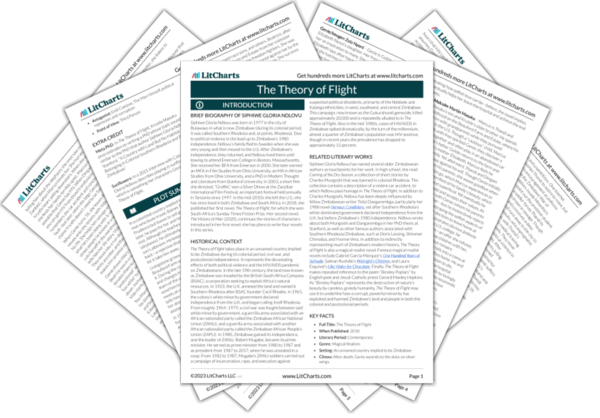Readers haven’t yet learned what medication Genie has been taking, who Vida is, or what exactly the “something” is. Yet the “something” clearly means enough to Genie to propel her to action. The items she sends to various people are associated with imagination and aspiration: the 1965 atlas she sends to Marcus is the one they used to inform their childhood travel game in the abandoned car, the Victoria Falls postcard recalls Golide’s story of all the elephants crossing the Zambezi once the first elephant had showed them they could, and the bird evokes flight imagery symbolic of individual aspiration. Genie’s final resolution—to take Beatrice to the spa—implies that while beautification isn’t the most important thing, it can be meaningful and good.
